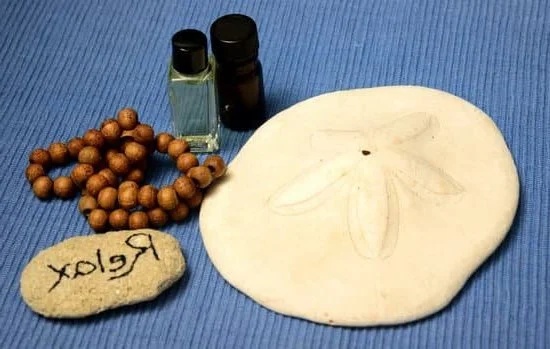Coconut oil has become increasingly popular in the world of natural health and wellness, with its wide range of uses and benefits. Aromatherapy, on the other hand, is a holistic healing treatment that uses natural plant extracts to promote health and well-being. But can coconut oil be used for aromatherapy? This article will explore the potential of coconut oil as a carrier for essential oils in aromatherapy practices.
Aromatherapy is known for its ability to enhance both physical and emotional health, offering a variety of benefits such as stress relief, improved sleep, and relaxation. When combined with the nourishing properties of coconut oil, the potential benefits of aromatherapy may become even more pronounced. In this article, we will delve into the specific advantages of using coconut oil for aromatherapy and how it enhances the overall therapeutic experience.
Coconut oil possesses unique properties that make it an ideal carrier for essential oils in aromatherapy. Its moisturizing and soothing effects on the skin allow for better absorption of essential oils, while its natural scent can complement or enhance the aromas of various essential oils. Throughout this article, we will explore these properties in detail and discuss how they contribute to the effectiveness of coconut oil in aromatherapy practices.
The Benefits of Aromatherapy
Aromatherapy is the practice of using essential oils and other aromatic compounds to improve a person’s physical or psychological well-being. It has been used for centuries as a natural healing treatment, and is known for its ability to promote relaxation, reduce stress, and improve mood. The use of aromatherapy can also have various other benefits such as improving sleep quality, boosting the immune system, and relieving pain.
Physical Benefits of Aromatherapy
Aromatherapy has been found to have several physical benefits, including reducing inflammation, easing muscle tension, and improving circulation. Certain essential oils have antimicrobial properties that help fight off bacteria and viruses. For example, tea tree oil is known for its antibacterial and antiviral properties, making it a popular choice in aromatherapy blends to help fight off infections.
Psychological Benefits of Aromatherapy
In addition to its physical benefits, aromatherapy has also been linked to various psychological benefits. Many essential oils have calming effects that can reduce anxiety and improve mental clarity. Lavender oil is one such essential oil that is commonly used in aromatherapy for its ability to promote relaxation and reduce stress. Other oils like peppermint and eucalyptus are known for their energizing effects and can help uplift the mood.
Overall Well-Being
The overall sense of well-being achieved through aromatherapy cannot be understated. By promoting relaxation, reducing stress, improving sleep quality, and uplifting the mood, aromatherapy can greatly enhance an individual’s quality of life. Whether it’s through diffusing essential oils or incorporating them into massage oils with coconut oil as a carrier, the benefits of aromatherapy make it a valuable tool for maintaining overall health and wellness.
In essence, the use of coconut oil for aromatherapy provides an extra layer of benefits due to its unique properties in enhancing absorption and nourishing the skin when blending with essential oils. With proper knowledge on how to utilize coconut oil effectively in aromatherapy practices, individuals can benefit from both the therapeutic effects of essential oils and the moisturizing properties of coconut oil simultaneously.
The Properties of Coconut Oil for Aromatherapy
Coconut oil is known for its versatile properties and has been used in various health and wellness practices, including aromatherapy. When it comes to using coconut oil for aromatherapy, it’s important to understand its specific properties and how it can enhance the overall benefits of this practice.
Natural Scent Carrier
One of the key properties of coconut oil for aromatherapy is its ability to act as a natural scent carrier. Because coconut oil is a highly stable carrier oil with a long shelf life, it can effectively preserve the aromatic compounds of essential oils when used as a base. This means that when you mix essential oils with coconut oil, the fragrance will last longer compared to using other carrier oils.
Moisturizing and Nourishing
Coconut oil is also known for its moisturizing and nourishing properties, making it an ideal choice for skin application during aromatherapy. When massaged into the skin along with essential oils, coconut oil not only helps in delivering the aroma but also provides added benefits by keeping the skin hydrated and soft. This can create a more holistic experience during aromatherapy sessions.
Absorption Rate
Another important property of coconut oil for aromatherapy is its absorption rate. Coconut oil has the ability to absorb into the skin at a moderate pace, allowing for a gradual release of the essential oils’ aroma over time. This characteristic makes it suitable for use in massage blends and skin care products used in aromatherapy treatments.
Different Ways to Use Coconut Oil for Aromatherapy
Coconut oil can be used for aromatherapy in a variety of ways, offering multiple benefits and applications. One of the most common ways to use coconut oil for aromatherapy is by creating your own aromatic massage oil. Simply mix a few drops of your preferred essential oil with coconut oil and use it as a luxurious and aromatic massage treatment.
Another way to utilize coconut oil for aromatherapy is by making homemade scented candles or wax melts. By adding essential oils to melted coconut oil and then allowing it to solidify, you can create beautifully scented candles or wax melts for a natural and calming aroma in your home.
In addition, coconut oil can be used as a carrier oil for essential oils in diffusers. When mixed with water and essential oils, the coconut oil helps to disperse the fragrance throughout the room, creating a soothing and pleasant atmosphere. This method also allows you to combine different essential oils with coconut oil, creating personalized blends for various aromatherapeutic effects.
When using coconut oil for aromatherapy, it is important to consider the quality and purity of both the coconut oil and any essential oils being used. Opting for organic, cold-pressed coconut oil that is free from additives or artificial fragrances will ensure the best results when using it for aromatherapy purposes.
| Ways to Use Coconut Oil | Benefits |
|---|---|
| Mixing with essential oils for massage | Creates a luxurious and aromatic treatment |
| Making scented candles or wax melts | Provides a natural and calming aroma at home |
| Using as carrier oil in diffusers with essential oils | Allows creation of personalized aromatic blends |
Safety Precautions When Using Coconut Oil for Aromatherapy
When using coconut oil for aromatherapy, it is important to keep in mind some safety precautions to ensure a positive and safe experience. Aromatherapy with coconut oil can offer many benefits, but it is essential to use the oil responsibly to avoid any adverse reactions. Here are some safety tips to keep in mind when using coconut oil for aromatherapy:
- Perform a patch test: Before applying coconut oil on your skin, especially if you have sensitive skin, it is important to perform a patch test. Apply a small amount of diluted coconut oil on a small area of your skin and wait for 24 hours to check for any allergic reactions or irritations.
- Proper dilution: When using coconut oil as a carrier for essential oils in aromatherapy, it is crucial to dilute the essential oils properly. Essential oils are highly concentrated and can cause skin irritation or sensitization if not adequately diluted.
- Avoid ingesting: While coconut oil has numerous health benefits when consumed, it is important not to ingest essential oils used in aromatherapy. Ingesting essential oils can be harmful and should only be done under the guidance of a qualified healthcare professional.
It’s also important to store your coconut oil and essential oils properly, away from direct sunlight and at the right temperature to maintain their potency and shelf life. Additionally, always read the labels and instructions when using essential oils with coconut oil for aromatherapy. By following these safety precautions, you can enjoy the benefits of aromatherapy with coconut oil in a safe and responsible manner.
In summary, while there are countless benefits associated with using coconut oil for aromatherapy, it is crucial to prioritize safety measures when doing so. Aromatherapy with coconut oil offers an opportunity for relaxation and therapeutic effects on both the body and mind; however, being mindful of safety precautions ensures an enjoyable experience without any adverse effects. Practicing responsible usage of coconut oil will allow you to fully harness its potential benefits without risking any negative impacts on your well-being.
Blending Essential Oils With Coconut Oil for Aromatherapy
When it comes to using coconut oil for aromatherapy, it is important to understand how to blend essential oils with coconut oil to maximize its benefits. Here are some tips and techniques for blending essential oils with coconut oil for aromatherapy:
1. Determine the Purpose: Before blending any essential oils with coconut oil, it is important to determine the purpose of the blend. Whether it’s for relaxation, stress relief, or skincare, understanding the intended outcome will help in choosing the right essential oils to blend with coconut oil.
2. Consider Dilution Ratios: Essential oils are highly concentrated and potent, so they should be diluted properly before use. The dilution ratio typically used is 2% for adults (10-12 drops of essential oil per ounce of carrier oil), and 1% for children and those with sensitive skin. When blending with coconut oil, it is important to maintain these dilution ratios for safe and effective use.
3. Choose Complimentary Essential Oils: Different essential oils have different properties and therapeutic benefits. When blending with coconut oil, consider complementary essential oils that can enhance each other’s effects. For example, lavender and chamomile are known for their calming properties and can be blended together with coconut oil for a soothing massage or diffuser blend.
4. Test the Blend: Before applying any blended essential oils on the skin or using them in a diffuser, it is recommended to do a patch test to ensure there are no adverse reactions. Apply a small amount of the blend on the inner forearm and wait 24 hours to check for any redness, irritation, or allergic reactions.
By following these tips for blending essential oils with coconut oil for aromatherapy, you can create custom blends that cater to your specific needs and preferences while enjoying the therapeutic benefits of both coconut oil and essential oils. Remember that safety should always come first when using any type of aromatherapy product.
Popular Essential Oil Blends With Coconut Oil for Aromatherapy
One of the most popular ways to use coconut oil in aromatherapy is by blending it with essential oils. This creates a powerful and versatile combination that can be used for a variety of purposes, including relaxation, stress relief, and improving mood. Some popular essential oil blends that can be used with coconut oil for aromatherapy include lavender and coconut oil, peppermint and coconut oil, and eucalyptus and coconut oil.
Lavender essential oil is known for its calming and soothing properties, making it an ideal choice for relieving stress and promoting relaxation when blended with coconut oil. Peppermint essential oil has invigorating and energizing properties which can help alleviate headaches and improve mental clarity when mixed with coconut oil. Meanwhile, eucalyptus essential oil has refreshing and cooling effects that can help clear the mind and sinuses when combined with coconut oil.
When using these essential oil blends with coconut oil for aromatherapy, it is important to properly dilute the essential oils in the carrier oil to ensure safety and effectiveness. This can be achieved by following recommended dilution ratios depending on the purpose of the aromatherapy blend. Whether diffused in the air or applied topically during massage or self-care rituals, combining these essential oils with coconut oil can enhance their benefits and provide a luxurious sensory experience.
Tips for Choosing the Right Coconut Oil for Aromatherapy Use
When choosing the right coconut oil for aromatherapy use, it is important to opt for unrefined, cold-pressed, and virgin coconut oil. These types of coconut oil retain more of the natural aroma and therapeutic properties compared to refined coconut oil. Look for organic and high-quality brands to ensure that you are getting pure coconut oil without any additives or synthetic ingredients.
Another factor to consider when choosing coconut oil for aromatherapy is its scent. Some people prefer the nutty aroma of unrefined coconut oil, while others may find it overpowering. If you prefer a milder scent, you can opt for refined coconut oil, which has a more neutral fragrance.
In addition to considering the production method and scent, you should also pay attention to the packaging of the coconut oil. To preserve its freshness and potency, choose coconut oil that comes in a dark glass jar or bottle. This helps protect the oil from light exposure, which can degrade its quality over time.
It’s important to note that not all types of coconut oil are suitable for aromatherapy use. For instance, fractionated coconut oil is processed in a way that removes long-chain fatty acids, making it unsuitable for diffusing essential oils or using in other aromatherapy applications.
| Coconut Oil Criteria | Consideration |
|---|---|
| Production Method | Unrefined, cold-pressed, virgin |
| Scent | Nutty aroma vs. neutral fragrance |
| Packaging | Dark glass jar or bottle |
| Suitability | Avoid fractionated coconut oil |
Conclusion
In conclusion, coconut oil can indeed be used for aromatherapy, thanks to its numerous beneficial properties. The versatility of coconut oil in aromatherapy lies in its ability to act as a carrier oil for essential oils, its moisturizing and nourishing effects on the skin and hair, and its mild scent that can complement the aroma of essential oils. Whether used alone or in combination with essential oils, coconut oil can enhance the overall aromatherapy experience.
One of the key benefits of using coconut oil for aromatherapy is its ability to promote relaxation and reduce stress. When applied during massage or diffused with essential oils, coconut oil can help create a calming atmosphere that promotes mental and emotional well-being. Additionally, the moisturizing properties of coconut oil can benefit the skin and scalp, making it a versatile option for both topical application and inhalation in aromatherapy practices.
When using coconut oil for aromatherapy, it is important to consider safety precautions and choose the right type of coconut oil. Opting for organic, unrefined coconut oil ensures that you are getting a high-quality product free from chemicals or additives.
By blending essential oils with coconut oil according to safe dilution ratios, individuals interested in aromatherapy aesthetically pleasing scents while reaping the therapeutic benefits of both the essential oils and coconut oil. Overall, the properties of coconut oil make it a valuable addition to any aromatherapy practice.
Frequently Asked Questions
What Is the Best Oil for Aromatherapy?
The best oil for aromatherapy is subjective and depends on individual preferences and needs. Popular options include lavender, peppermint, tea tree, and eucalyptus oils, as they are versatile and offer various therapeutic benefits.
What Are the Benefits of Coconut Aromatherapy?
Coconut aromatherapy, using coconut oil as a carrier for essential oils, offers several benefits. Coconut oil has moisturizing properties that can nourish the skin when used in massage or applied to the body. Its pleasant scent also complements the fragrance of essential oils.
Can You Use Regular Coconut Oil to Dilute Essential Oils?
Yes, you can use regular coconut oil to dilute essential oils for aromatherapy purposes. However, it’s important to note that unrefined coconut oil has a strong coconut scent that might interfere with the aroma of the essential oil. Refined coconut oil is a better option for dilution as it has a milder scent.

Are you looking for a natural way to improve your health and wellbeing?
If so, aromatherapy may be the answer for you.



